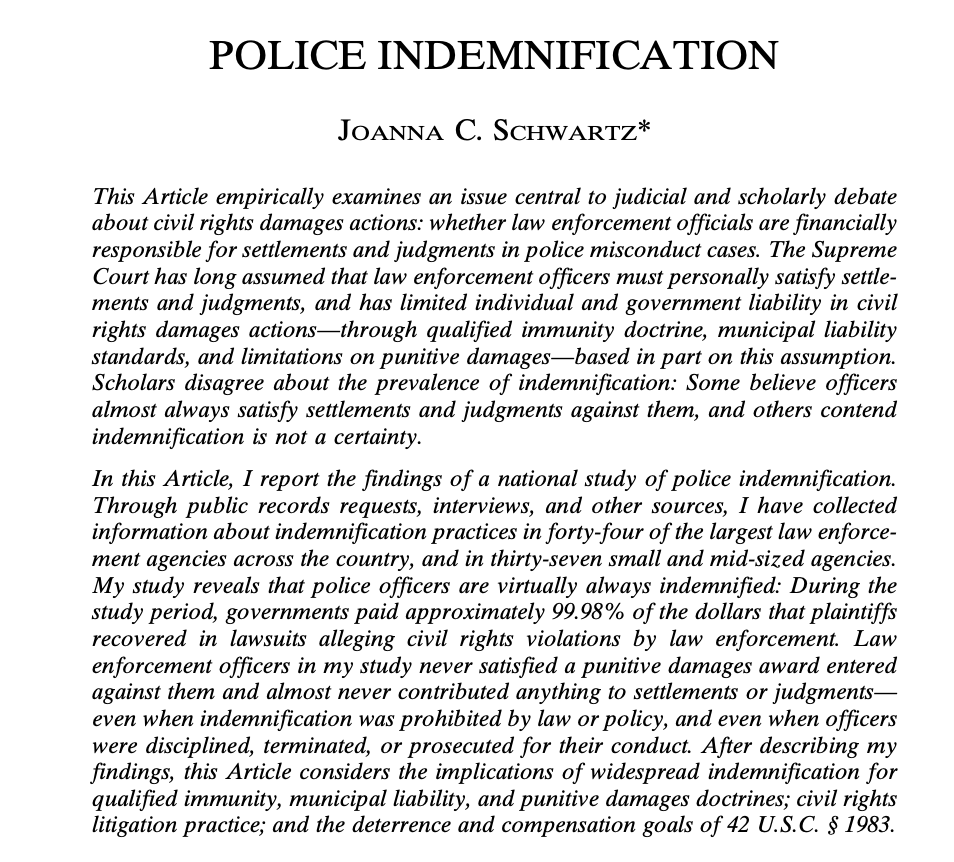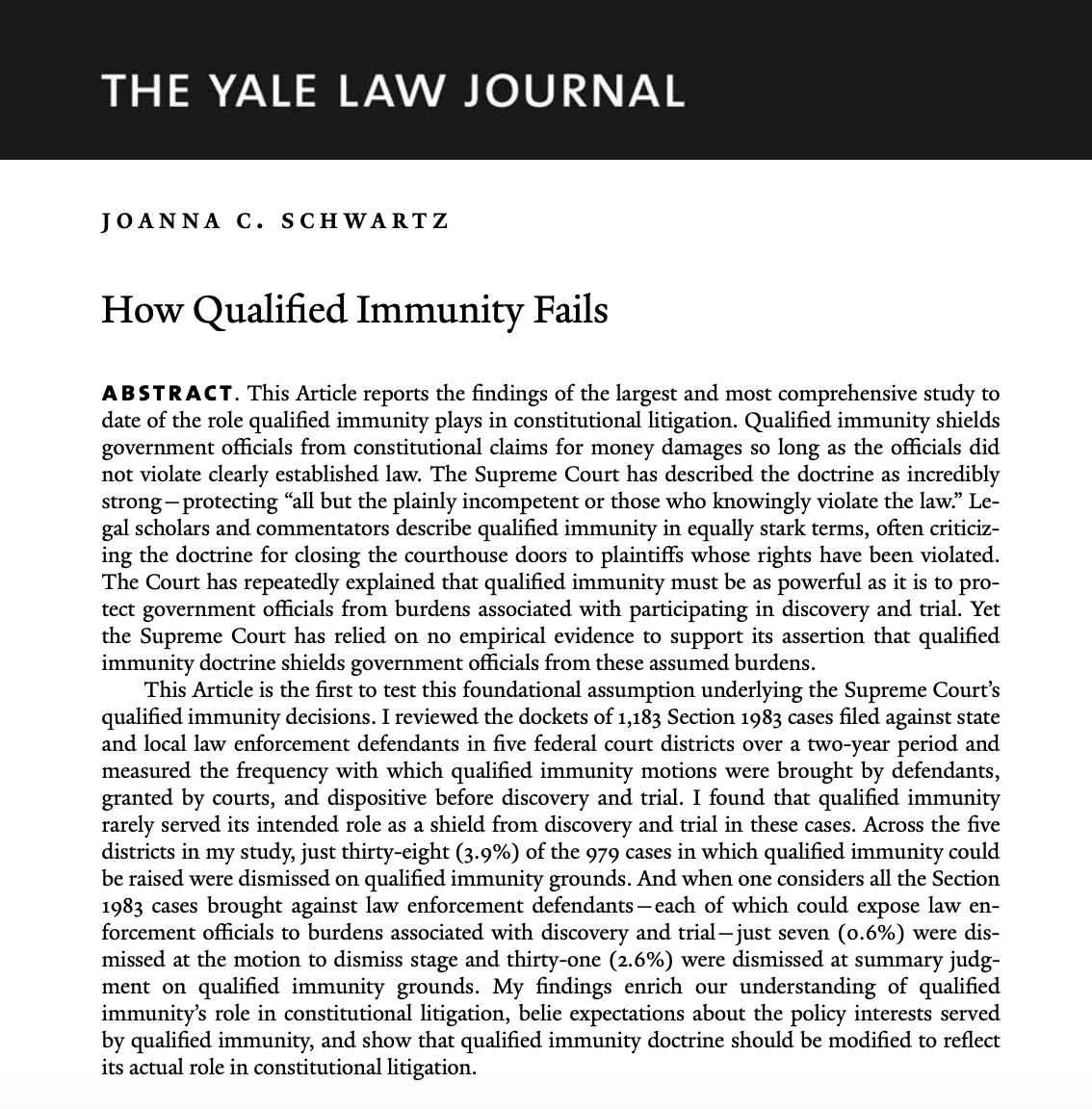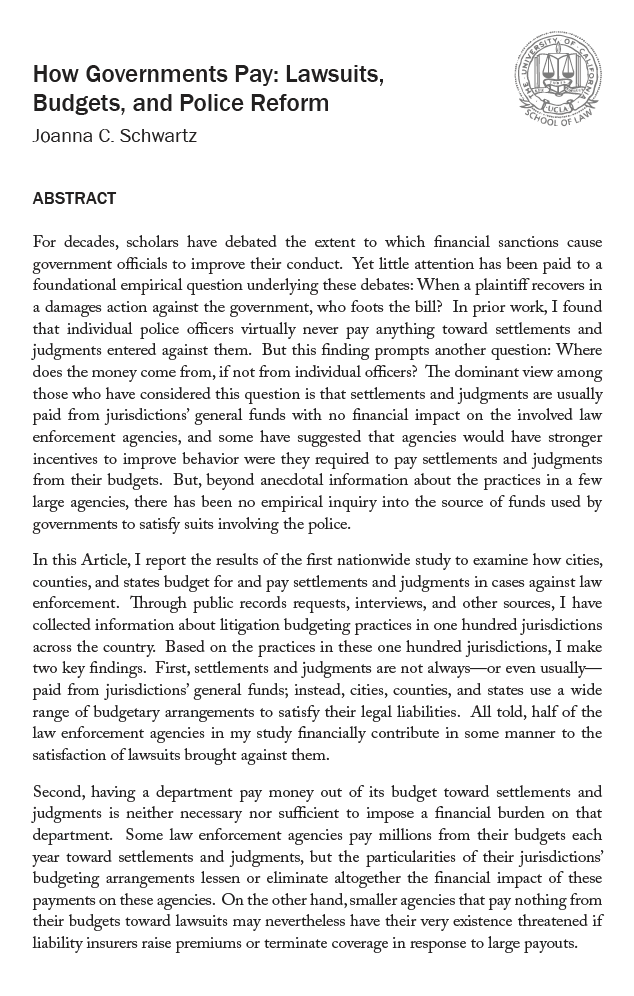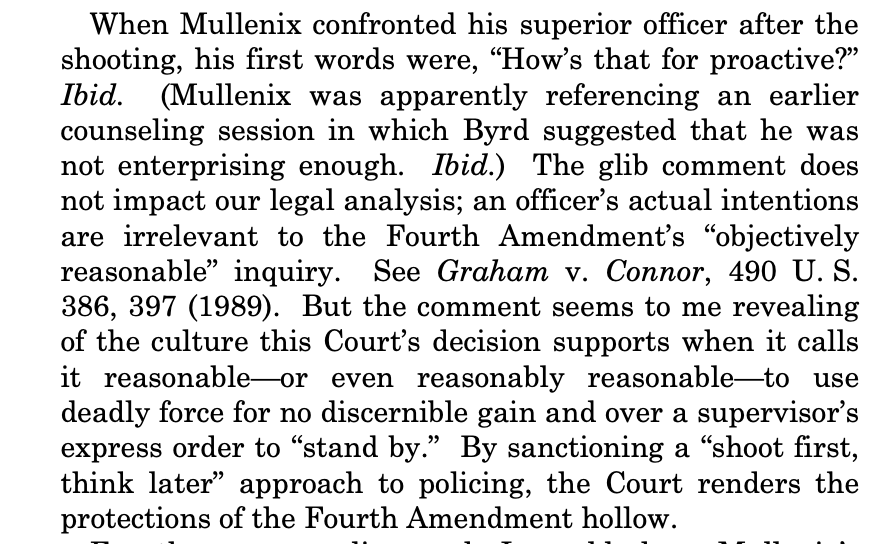
Today’s summary reversal in Taylor v. Riojas is a big deal. In it, SCOTUS breathed new life into the notion that qualified immunity should be denied if the constitutional violation is obvious - a ruling the Court made almost 20 years ago but has ignored until today. 1/8
One of the most damaging aspects of qualified immunity is the notion that plaintiff must find a prior court decision with virtually identical facts to establish officers were on notice of their misconduct. It’s a nearly impossible standard to meet - and ridiculous to boot...2/8
...because officers aren’t actually educated about the facts and holdings of these cases (so they aren’t actually on notice of these decisions.) papers.ssrn.com/sol3/papers.cf…. 3/8
But there was a SCOTUS decision in 2002, Hope v. Pelzer, in which the Court said a prior decision was unnecessary when the violation was obvious. This decision has been largely ignored by the Court until today, in its decision in Taylor v. Riojas. 4/8
Taylor v. Riojas is a shocking case - a prisoner was kept in a cell covered with feces for six days. It may feel like a small victory to have SCOTUS reverse dismissal. But the Court also makes clear in its decision that Hope is still good law. 5/8
I have thought - and written - that SCOTUS’s concerns about stare decisis might lead it not to reverse qualified immunity as a formal matter, but to ease up on the message it is sending to lower courts about the need for prior precedent on point. Taylor does just that. 6/8
PS Justice Alito’s dissent in Taylor - arguing that the Court shouldn’t have summarily reversed because that’s not what SCOTUS does (when that is precisely how the Court has decided most of its QI cases) deserves its own thread. 7/8
If you want to read the decision, it’s here: scotusblog.com/wp-content/upl… /end
*Correction - Alito concurred in the judgment in Taylor. But his rationale continues to ignore all the Court's summary reversals in QI cases.
• • •
Missing some Tweet in this thread? You can try to
force a refresh






